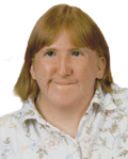
Personal Perspectives
Words of Wisdom Wednesday: A Mother and Son's Journey
Never underestimate the power of what children can teach you
Posted January 27, 2010
This week, I had the pleasure of interviewing Sarah Korsiak Cellier, whose son was born with Mecp2 Duplication Syndrome, a very rare disability characterized by a duplication of the protein-making gene that is central in brain development. Here's her story.
Describe a bit of the emotional journey you found yourself on after your child's birth?
When my son was born, we almost immediately realized that something was not right. Three days after his birth, he was rushed to the Neonatal Intensive Care Unit for Renal failure. This was the beginning of the emotional roller coaster that continued until we got his diagnosis of Mecp2 Duplication Syndrome when he was two and a half years old. It was very difficult to see other children reach milestones that our son was not reaching. It became especially difficult when younger children started to pass him by developmentally. Once we got the diagnosis, it felt like a weight had been lifted and a new one dropped at the same time.
Describe your greatest joy a mom of a child with a disability. Is there any particular moment that sticks out in your mind?
My son is a constant source of joy, amazement, and inspiration to me. He is so full of happiness and admiration for the world. He has taught me so much about myself and how I strive to be as a person. As a result of his disability, everything that we take for granted in life is a huge challenge for my son. It is so awe inspiring to see him surpass the medical communities idea of what life will be like for him and to continue to grow, working his hardest every step of the way.
How important, in your view, is the relationship between a mother and her child with a disability?
The relationship between mother and child is so very important in any situation with or without a disability. It becomes that much more important when your child is disabled. Every child looks to their parent for love, support, acceptance, value and encouragement. It is so important to foster this within every child, but when your child is disabled, there are so many more people that may not view them in this light. It is my job and my hope that I always let my son know that he is loved, accepted, supported, valued and encouraged.
What do you see as the biggest misconception about children with disabilities?
In our case, our son does not speak, and I notice the biggest misconception is that because he doesn't speak, he doesn't understand anything. This couldn't be further from the truth. Another misconception is that children with disabilities are the ones who need all the teaching, but they can teach us so much about ourselves and our world.
What is your biggest concern for children with disabilities?
My biggest concern aside from the issues that come with Mecp2 Duplication Syndrome are that he will be confronted with unkind and hurtful people who judge him based on his disability. I realize that this is the fear of many parents regardless of disabilities, but it's still there.
What is your #1 piece of advice for parents of children with disabilities?
If someone gives you a diagnosis, listen, take it in, take from it what you need, but don't let that be the end. Your child is an individual, and you never know what someone will or will not accomplish. Early intervention is key, and keep your expectations for your child high; you'll be surprised what they may accomplish all the way.

